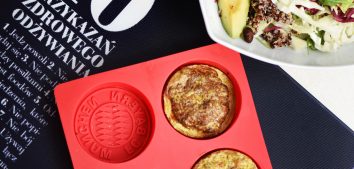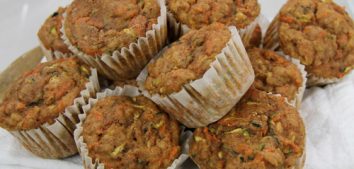
CARBOHYDRATES. TO EAT OR NOT TO EAT?
Unforutunately, many people who want to lose weight, still cut back on carbohydrates and/or fats. You can read my article on the importance of fats here.
picture by: Adam Mruk
I strongly believe that fats are the most important in our everyday diet.
What about the carbohydrates?
You’re a physically and professionally active person, you’re in a lot of stress and you often work after hours. You don’t have any health problems. Suddenly, you decide to cut back on carbohydrates. The effect is obvious – you’ll feel weak and you’ll have less energy. But that’s not everything that you’ll face.
If you want to considerably cut back on carbs and still stay healthy you need to increase the amount of fats in your diet – it has been confirmed by my observations.
Fats and proteins eaten together can make you feel very full, but you gotta eat slowly and bite accurately. Such meals are smaller than the ones that include carbohydrates so we tend to eat more than we actually need to feel full.
Just 50-70 grams of carbohydrates a day is enough to keep balance. Remember that they can also be found in vegetables: potatoes, swee potatoes, root vegetables, pumpkin. Besides, we’ll also eat a lot of important vitamins and minerals.
So if you want to cut back on carbs eat those 70 grams a day, but make sure to eat good proteins (meat, fish) and healthy fats.
For example 50g of carbohydrates means:
- 2 bananas
- 4-5 new potatoes
- 80g of groats
When it comes to mass reduction – keeping a low-carb diet will give you only a short-term effect. The lower the level of your fat tissue the more you have to make sure you eat an appropriate amount of carbohydrates and fats. Especially when you’re in a lot of stress and you’re physically active. Muscle growth needs to be followed by the increase in the amount of carbs you eat.
What’s my point?
Listen to your body. If you don’t need that much energy during a day you don’t need a big supply of carbohydrates. Instead, choose meals that consist of fats and proteins, especially in the morning. You can eat carbs for your second breakfast.
But be careful. If you don’t provide your organism with an appropriate amount of carbohydrates, being an active person, you can suffer from irritation, fatigue, sleep disorders, frustration and you can simply lose the joy of living. If you’re ever feeling this way it means that your adrenal glands are excesivelly producing cortisol. They are exhausted because they are not provided with the right amount of carbohydrates.
When you reduce the amount of carbohydrates in your diet it becomes difficult for your organism to gain glucose and produce energy. Exhaustion of your adrenal glands handicaps the glycogen conversion. This is when your thyroid slows down, you’re feeling cold all the time, you don’t want to have sex, you have sleep disorders, you’re period stops and you gain weight.
WATCH YOUR ORGANISM!
To improve your sleep and mood try eating carbohydrates as an afternoon snack (they increase the production of tryptophan which is responsible for serotonin and dopamin production – mood enhancers). To increase the level of serotonin in your organism you need to eat a meal that consists of carbohydrates (but doesn’t have any protein – a so called ‘separable meal’). Adding protein would stop the whole process.
An example of such a snack: rice with vegetables. In this case, you should eat protein for dinner (fish/meat with vegetables).
So who can actually gain from a low-carb diet?
It is good for people that suffer from autoimmune diseases, such as: diabetes, insulin resistance. Also, in some tumors, intensinal problems such as FOODMAPS and in problems with carbohydrates and fiber absorption.
Where to find carbohydrates?
- bulbous vegetables: sweet potatoes, potatoes, pumpkin, cassava, beetroots, carrots, parsley
- gluten-free grain
- quinoa
- groats: millet, buckwheat, amaranth
- white and red rice
- fruit: bananas, figs, dates
- chestnuts
- beet molasses
- and after the training: coconut water
When to eat carbohydrates?
Based on my experience:
first breakfast
based on proteins and fats (to avoid an insuline boost – it increases the cortisol level and makes you hungry)
second breakfast
carbs and fats
lunch
First carbs, then fats and fiber. Dividing the consumption of carbs equally works well for people that train daily. While people with an unstable level of sugar should not exceed those 50-70g a day
after the training/afternoon snack
carbohydrates to supplement muscle glycogen
dinner
fiber










Comments 1 Comment
Join the discussion…
Witam,
w związku z tym planem żywienia w ciągu dnia wyżej wymienionym-jak mam odżywiac się, jeśli np. obiad jem o godz.14-15.00. a trening mam o 19-20.00. mam zjeść kolejny pełnowartościowy posiłek na 2 godziny przed treningiem, następnie przekąska przed i węgle po treningu, a na koniec znów pełnowartościowy posiłek? Z góry dziękuje za odpowiedź. Pogubiłam się chyba lekko:) Pozdrawiam.